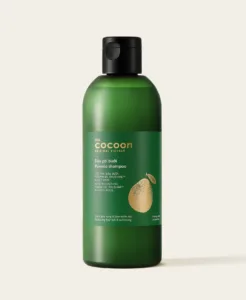New
The Secret Gardens: Exploring the Botanicals of Vietnamese Vegan Beauty
In the realm of beauty, the movement towards vegan cosmetics has captured the world’s attention. Consumers are increasingly seeking products that are free from animal-derived ingredients and that reflect a deeper commitment to ethics and sustainability. This global trend, however, finds a remarkable and long-standing parallel in the traditional beauty practices of Vietnam. For centuries, the secrets to Vietnamese beauty were not found in a laboratory but in the country’s vast and diverse botanical landscape—in its “secret gardens.”
This comprehensive article takes a deep dive into the botanical heart of Vietnamese beauty. We will explore the key plants and herbs that have been used for generations to create skincare and haircare remedies, revealing a tradition that is inherently vegan and perfectly aligned with the principles of modern, clean beauty. This is a journey to the source of Vietnam’s timeless beauty secrets, from the bustling markets to the quiet, medicinal fields.

From the Land to the Skin: The Traditional Approach
Traditional Vietnamese beauty was a direct reflection of the country’s agricultural and herbal heritage. The philosophy was simple: what is good for the body to consume is also good for the skin to absorb. This belief system led to a beauty regimen built entirely on ingredients sourced from the land. There were no complex chemicals or animal byproducts; there was only nature’s bounty.
The beauty rituals were often intertwined with daily life, from using leftover rice water as a face wash to applying a simple turmeric mask. These practices were a testament to the resourcefulness and the deep, intuitive knowledge of the natural world possessed by generations of Vietnamese women.
A closer look at some of Vietnam’s most powerful botanicals:
- Moringa (Chùm ngây): Often called the “miracle tree,” moringa leaves are packed with vitamins, minerals, and antioxidants. In traditional Vietnamese beauty, moringa oil, extracted from its seeds, was used as a potent anti-aging and moisturizing agent, known for its ability to reduce fine lines and improve skin elasticity.
- Passion Fruit Seed Oil (Dầu hạt chanh dây): The oil from passion fruit seeds is a lightweight, non-greasy oil that is rich in linoleic acid. It was a popular remedy for acne-prone skin, as it helped to balance oil production without clogging pores.
- Soapberry (Bồ kết): For centuries, soapberry was the natural shampoo of choice. Its fruit contains saponins, which create a gentle, cleansing foam. It was used to wash hair, leaving it shiny, strong, and free from dandruff.
- Green Tea (Trà xanh): A staple in Vietnamese culture, green tea was used to create toners and facial steams. Its powerful antioxidant properties helped to combat free radical damage and soothe inflamed skin.
- Gotu Kola (Rau Má): Known as a powerful healing herb, Gotu Kola was used to soothe skin irritations and promote wound healing. Its modern use in skincare as a calming and anti-inflammatory ingredient is a testament to this ancient wisdom.

The Modern Revival: Reclaiming a Legacy
In recent years, a new generation of Vietnamese entrepreneurs has recognized the immense potential of this traditional knowledge. They are taking these ancient ingredients and rituals and modernizing them for a global audience. This is not just a commercial trend; it is a cultural revival, a return to a heritage of clean and conscious beauty.
This modern revival is characterized by:
- Scientific Validation: While traditional knowledge is invaluable, modern science provides the tools to validate its efficacy. Laboratories are now able to analyze the active compounds in ingredients like Centella Asiatica (rau má), confirming its renowned healing and anti-inflammatory properties.
- Advanced Formulation: Modern technology allows for the creation of stable, effective, and consumer-friendly products. For example, a traditional herbal paste can be formulated into a lightweight serum, or a rice bran oil can be infused with other botanical extracts to create a powerful yet gentle cleanser.
- Sustainable Sourcing: Many new brands are building direct relationships with local farmers, ensuring that ingredients are sourced sustainably and that the communities that grow them are fairly compensated. This creates a supply chain that is both ethical and transparent.
- Global Certifications: To compete in the global market, Vietnamese brands are pursuing international vegan and cruelty-free certifications. These seals of approval, such as those from The Vegan Society and Leaping Bunny, are crucial for building trust with international consumers and showcasing a genuine commitment to ethical practices.
The “secret gardens” of Vietnam are no longer a hidden treasure. They are being celebrated on a global stage as a source of powerful, natural, and ethical beauty products. The story of Vietnam’s vegan beauty movement is a compelling one, demonstrating how ancient wisdom can provide a blueprint for a more beautiful, ethical, and sustainable future.

As consumers worldwide seek products that are clean, effective, and rooted in a genuine story, Vietnam is poised to become a leader in the global beauty market. The country’s heritage, which is fundamentally plant-based and inherently beautiful, is its greatest strength. It is a reminder that sometimes, the most revolutionary ideas are the ones that have been with us all along.

